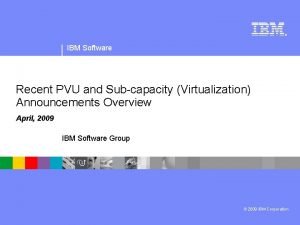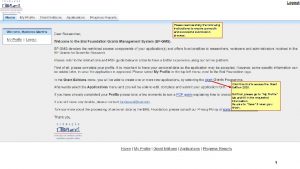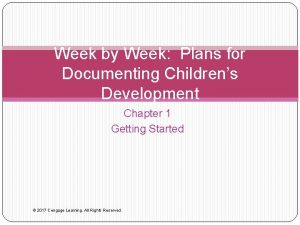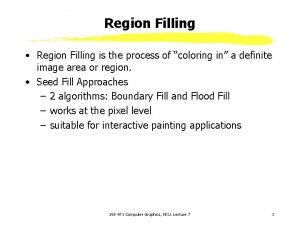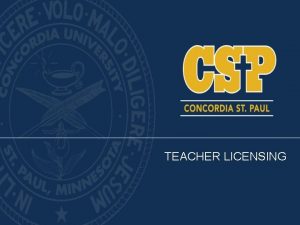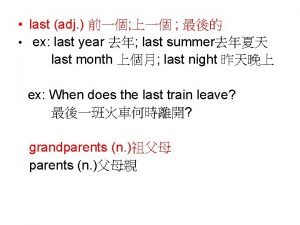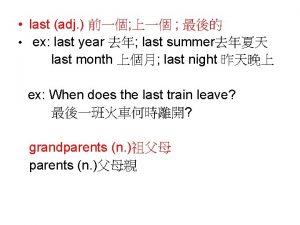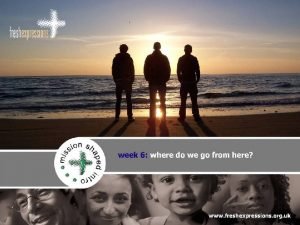Announcements Welcome to our last week Please fill



















- Slides: 19

Announcements Welcome to our last week! Please fill out course evaluations by Friday!! Final essay due Friday by midnight

Comparing the ECt. HR and the ACHPR How do the European Court of Human Rights and African Court on Human and Peoples’ Rights compare? How have they enhanced rights protections in their member states? Why are states more likely to comply with ECt. HR? Intro videos: ECt. HR and ACHPR

Origins I. Council of Europe • Set up in 1949 (10 nations), today 47 nations • Created a Committee of Ministers and Assembly of Parliamentarians • 1950 European Convention on Human Rights • Based on 1948 UDHR, attempt to make enforceable • 1959 European Court of Human Rights created to interpret and enforce Convention

Origins II. African Union • 1998 founding protocol adopted by Organization of African Unity • Oversees African Commission on Human and Peoples’ Rights (est. 1986) • African Court on Human and Peoples’ Rights to supplement Commission work • • • 2004: Ratified (today: 30/50 states) 2006: First judges 2009: First judgement

Access II. European Court of Human Rights (ECt. HR) • Pre-1998 optional clauses • • • Art 46: compulsory jurisdiction Art 25: individual petitions Most cases adjudicated by quasi-judicial European Commission of Human Rights • Post-1998 • • Court jurisdiction no longer compulsory National governments, individuals

Access II. African Court on Human and Peoples’ Rights (ACHPR) • Access limited largely to state parties, the African Commission, and the African intergovernmental organizations with standing in cases • Article 34(6) of founding protocol: States may allow standing for NGOs and individuals to directly petition court (only nine have)

Appointment, Size, and Term Length I. ECt. HR • 47 judges (one for each member state) • 9 -year non-renewable terms • States nominate 3 judges, and a majority of parliamentary assembly of Council of Europe must elect from those 3 judges

Appointment II. ACHPR • 11 judges, nationals of African Union member states (all part time except President) • Judges chosen for high moral character and human rights expertise • Not representative of all AU member states, but institutionalize attempts to achieve representation of different legal traditions, as well as gender

Role of Court I. ECt. HR • Interpret and enforce European Convention on Human Rights II. ACHPR • Definitive interpreter and guardian of rights guaranteed in African Charter

National Sovereignty and State Compliance I. ECt. HR • Very high compliance rates • Margin of Appreciation: the degree of deference afforded to member states in implementing and applying Convention rights • • Developed by ECt. HR Where there is more consensus over meaning of rights (e. g. right against torture), the margin of appreciation typically granted is much smaller

National Sovereignty and State Compliance II. ACHPR a. States • • Refusal to ratify court’s founding protocol (30/50 AU members) Refusal to allow NGO/individual petitions (only 9 so far) Delayed nominating judges until 2006 Rwanda, e. g. withdraws from optional protocol after 2017 Ingabire v. Rwanda case challenges Rwandan application of statute criminalize speech that minimizes Rwandan genocide

National Sovereignty and State Compliance II. ACHPR b. National courts • • • Frequently ignore relevant judgments Few references to African Charter in domestic constitutions (unlike European counterparts); fewer references to African Charter in domestic court decisions BUT increasing citation both of African Commission and African Court

National Sovereignty and State Compliance II. ACHPR c. NGOs • Played huge role in developing HR system • Limited by protocol acceptance, and must have observer status before African Commission • Court has made restrictive interpretations of rules of standing for advisory opinions, limiting NGOs attempts to expand HR jurisprudence

Notable cases/judgments I. ECt. HR • 60% of cases between 1960 -2014 invoked Art 6 (right to fair trial) • • Length of proceedings: e. g. Trippel v. Germany (2003) Improper action of national courts: e. g. Popsecu Nast v. Romania (2003)

Notable cases/judgments (cont. ) Expansion of Convention Rights Goodwin v. UK (2002) Dispute: Goodwin claimed UK laws violated the Convention rights: -Art 14 (prohibition of discrimination) -Art 8 (right to private life) -Art 13 (right to effective remedy) -Art 12 (right to marry and to found a family)

(Goodwin Case, cont. ) Question: In your view, should this case be the subject of national or international law? Should this be the responsibility of the legislature or the courts? Why or why not? ECHR Decision: UK law is in violation of Art 8 (private life) and Art 12 (to marry)

Notable cases/judgments II. ACHPR • Electoral rights: • • Mtikala v. Tanzania (2013): ban on independent electoral candidacies in Tanzanian Constitution violates African Charter APDH v. Côte d’Ivoire (2016): institutional reforms that undermine opposition candidates violates Charter

Notable cases/judgments II. ACHPR • Involvement in Libyan uprising against Gaddafi regime: • • 2010: Second judgment ever orders Libya to refrain from violating life and bodily integrity of protesters (ignored by regime) 2016: Secret detention and prosecution of Gaddafi’s second son is a violation of Art 6 (right to personal liberty) and Art 7 (right to fair trial)

IX. The Impact of the European Supranational Legal Systems Democracy and Legitimacy: International courts can serve to ensure that national governments implement the rights that are available to individuals in constitutions, treaties, and conventions, but these courts can also expand the meaning and scope of supranational law with the effect of undermining national law and national sovereignty.
 Wise men three clever are we
Wise men three clever are we Pvu background
Pvu background R/announcements
R/announcements David ritthaler
David ritthaler What happened when montag crossed the ten-lane highway
What happened when montag crossed the ten-lane highway Kluver bucy syndrome
Kluver bucy syndrome General announcements
General announcements Please be quiet. i (try) to sleep
Please be quiet. i (try) to sleep Xxxx and
Xxxx and Please read instructions carefully before use
Please read instructions carefully before use Week by week plans for documenting children's development
Week by week plans for documenting children's development Perbedaan boundary fill dan flood fill
Perbedaan boundary fill dan flood fill Filling area
Filling area Region filling in computer graphics
Region filling in computer graphics Welcome please take a seat
Welcome please take a seat Please extend your warm welcome
Please extend your warm welcome Welcome please sign in
Welcome please sign in Welcome to week 3
Welcome to week 3 Good morning year 5
Good morning year 5 Class 4 english assignment
Class 4 english assignment

